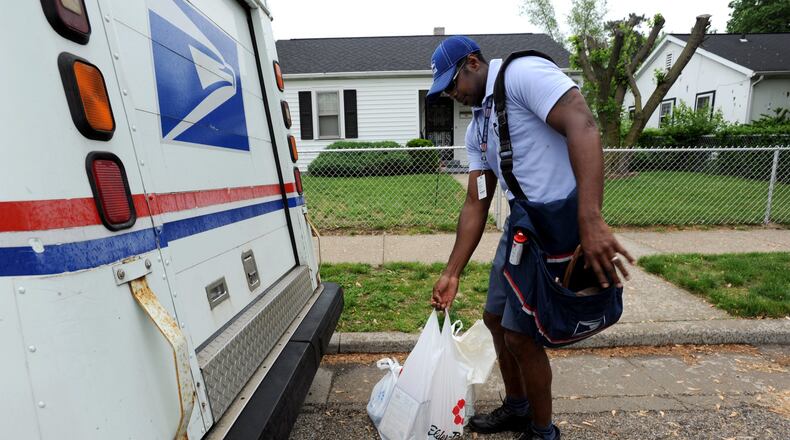“It is a great number and (we are) proud of the number of people who supported the food bank this weekend,” Jackson said.
» PREVIOUS STORY: Springfield food bank teams with letter carriers to 'Stamp Out Hunger'
Last year, 17,303 pounds of food was collected in Clark County in just one day - that equates to about 14,000 meals, according to Jackson.
The drive was coordinated Saturday, May 11, by U.S. Postal Service letter carriers. Participating residents left nonperishable food products at their doors for the letter carriers to collect.
The food collected was donated to the Second Harvest Food Bank, which provides food assistance to thousands of area residents.
» LOCAL: Springfield-Clark CTC students build house for local residents
Second Harvest is currently in the process of becoming a locally-operated nonprofit called the Ohio Tri-County Food Alliance. The transition began in October of last year.
Jackson said Stamp Out Hunger gives everyone an opportunity to do something good, even if it’s a small gesture.
“If someone has an extra can, they can set it out and that can feed one person. I think it’s a great way for the community to give back.”
Jackson also thanked letter carriers for their volunteerism.
“We had a lot of trucks that were completely full,” Jackson said. “It means a lot to us that they’re willing to do that for us and for the community.”
About the Author
